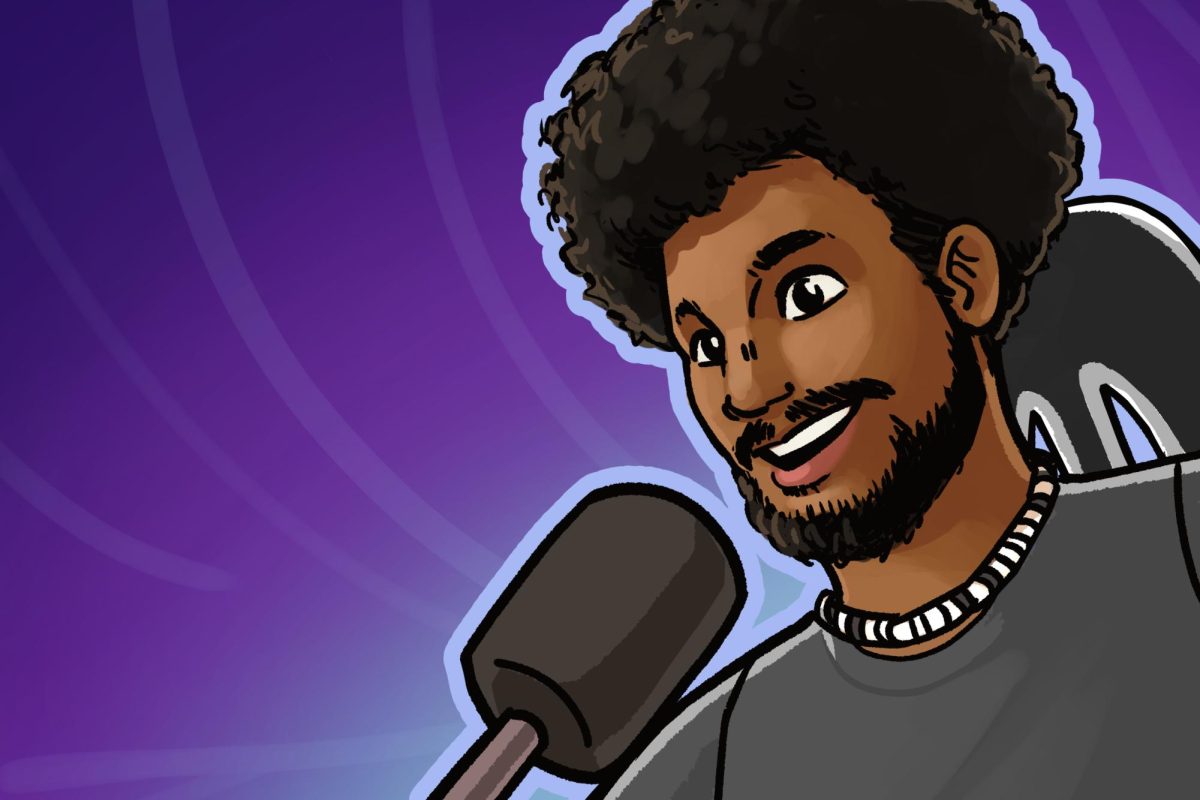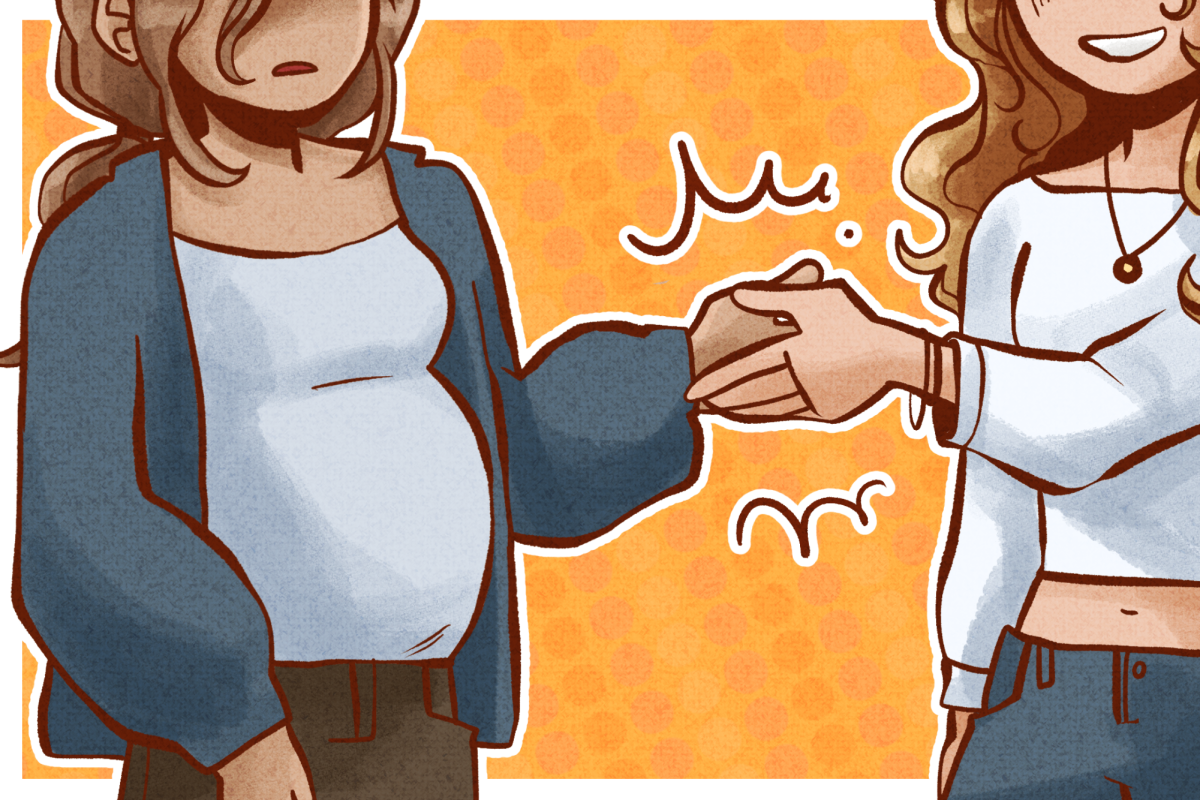Growing up as a nerdy Black child, I often searched for spaces where I felt truly accepted and understood. The world of online content creation, much like other industries, frequently lacked representation for people who looked and acted like me. Black creators, particularly in gaming and entertainment, were few and far between.
At 10 years old, I found CoryxKenshin on YouTube — a revelation that changed how I viewed myself and the possibilities for Black creators in predominantly white spaces. Since then, Cory has been a constant in my life, providing comfort, laughter and a powerful sense of representation. His content, rooted in authenticity, faith and unapologetic Blackness, has not only engaged me but empowered me to embrace my identity and pursue my passions.
Before I discovered Cory, my YouTube habits mirrored the landscape of the gaming community at the time, which was dominated by white creators. Growing up, I spent countless hours watching channels like PewDiePie and other “giants” of YouTube.
At the time, I wasn’t consciously seeking representation. I enjoyed the content, the humor and the connection to gaming, which was a major part of my childhood. But as I look back now, I realize how much I was settling for content that didn’t reflect me or my experiences.
In those early days of watching YouTube, the lack of Black gamers on the platform wasn’t something I actively noticed, but it was something I felt. While I found the content entertaining, there was always a subtle sense of detachment. These creators didn’t look like me, didn’t share my cultural experiences and often didn’t address or even acknowledge the existence of Blackness.
Get The Daily Illini in your inbox!
It wasn’t something I questioned because, as a young Black girl, I had grown accustomed to finding joy in spaces where I wasn’t fully included. I didn’t know there was an alternative — I didn’t know it could feel different.
That illusion of neutrality shattered when a clip emerged of PewDiePie, one of the most popular YouTubers at the time, casually using the n-word with a hard “r” during a livestream. I remember the wave of emotions I felt: shock, disappointment and anger.
This was someone I had spent hours watching, whose videos had been a source of entertainment for me; yet, in one moment, it became painfully clear that my identity as a Black person was something he could disregard so casually and cruelly. It wasn’t just a slip of the tongue but a reminder of how the gaming world often viewed people like me as an afterthought — or worse, a punchline.
After that, I couldn’t bring myself to watch his content anymore. But then, one day, I stumbled across a video by Cory, and everything changed.
When I initially encountered his channel, it was during a time when I was yearning for connection and representation. I had just hit double digits, navigating the complicated terrain of growing up as a young Black girl in a predominantly white space.
At school, I often felt isolated — not because I wasn’t surrounded by friends but because I didn’t see myself reflected in the environments I was a part of. My interests in gaming and online media felt out of place, and I struggled to find role models in the content I consumed.
The first video I watched featured Cory playing the first Outlast, and I was immediately hooked by his energy and personality. He wasn’t just playing a game; he was crafting a full experience for his audience, filled with humor, creativity and vulnerability. But what stood out to me the most was seeing a Black man at the forefront of this kind of content.
Immediately, I could tell Cory was different. Here was a Black creator who brought his full self to the screen without apology. He created a space where Blackness was embraced, not ignored or mocked. For the first time, I didn’t have to compartmentalize my identity to enjoy gaming content. I could laugh, learn and feel represented all at once.
I’d watch his videos late at night on my first iPhone, sneaking it under the covers after my mom demanded I go to bed. His content became my safe haven. When I didn’t feel like I fit in at school or in my broader environment, I knew I could come home, open YouTube and feel a sense of connection and joy through his channel.
Cory’s videos have been a constant presence in my life for nearly a decade. From late-night binge sessions to rewatching older content during his breaks, Cory’s channel has been a source of comfort and joy. His humor has lifted me during some very lonely and tough times.
Cory isn’t just a gamer to me; he is a role model. In every video, he carries himself with confidence and authenticity. He made me believe that being different wasn’t a limitation but a strength. His presence in my life has taught me an important lesson: Embrace who you are, even in spaces that might not seem ready for you.
As a Black creator in a predominantly white industry, Cory has faced unique challenges. He uploaded a video sharing his frustration with what he perceives as unfair treatment toward Black creators. He highlights how his videos, specifically one involving the game The Mortuary Assistant, were age-restricted by YouTube while similar content from other creators — predominantly white creators — was not. This discrepancy made him question whether the platform holds creators to different standards based on race or favoritism.
Cory used his platform to shed light on what he believes is a larger issue affecting many Black creators on YouTube. He highlighted the challenges Black creators face in gaining visibility and fair treatment on a platform that holds immense influence over careers. Cory’s openness and willingness to challenge a platform as influential as YouTube highlighted the importance of representation and fairness, not just for himself but for all creators who rely on the platform to share their voices. Cory has navigated these barriers with grace, refusing to compromise his identity.
Cory has done more than create videos — he’s built a community where Black youth feel seen, valued and celebrated. It’s a blessing for so many of us who do not always have the room to be ourselves. He taught me to carve out my own space in industries that too often overlook Black people.
Cory’s success is a testament to the power of representation. For many of us, Cory’s videos aren’t just entertainment — they’re reminders that Black excellence knows no bounds.
Cory’s success is more than gaming — it’s about redefining what’s possible for Black creators. Cory has shattered stereotypes and shown that Black creators can thrive on their own terms. His work has opened doors for others, proving that representation matters and that our stories deserve to be told.
As I reflect on the years I spent watching Cory, I’m filled with gratitude for his impact on my life and career. Cory’s journey reminds us that success isn’t just about personal achievement — it’s about uplifting others and creating spaces where everyone feels valued. As a journalist, I aim to amplify Black voices and challenge systemic narratives — values Cory embodies in his work.
For me and countless others, Cory isn’t just a content creator — he’s a symbol of what’s possible when we stay true to ourselves. I now have the opportunity to tell stories that celebrate the resilience, creativity and excellence of Black individuals. It’s why I’ve set my sights on interviewing Cory for a feature in The Daily Illini and capturing footage for my “Black Joy” documentary.
This project is deeply personal to me, as it’s dedicated to showcasing the beauty and strength of Black communities. Having Cory share his insights, journey and thoughts on how he impacts Black youth with his content would be a dream come true — not only as a fan of his but as someone who aims to carry on his legacy.
Through his words and presence, I hope to inspire others as he has inspired me, reminding us of the power of authenticity, representation and joy.
Jasmine is a sophomore in Media.







